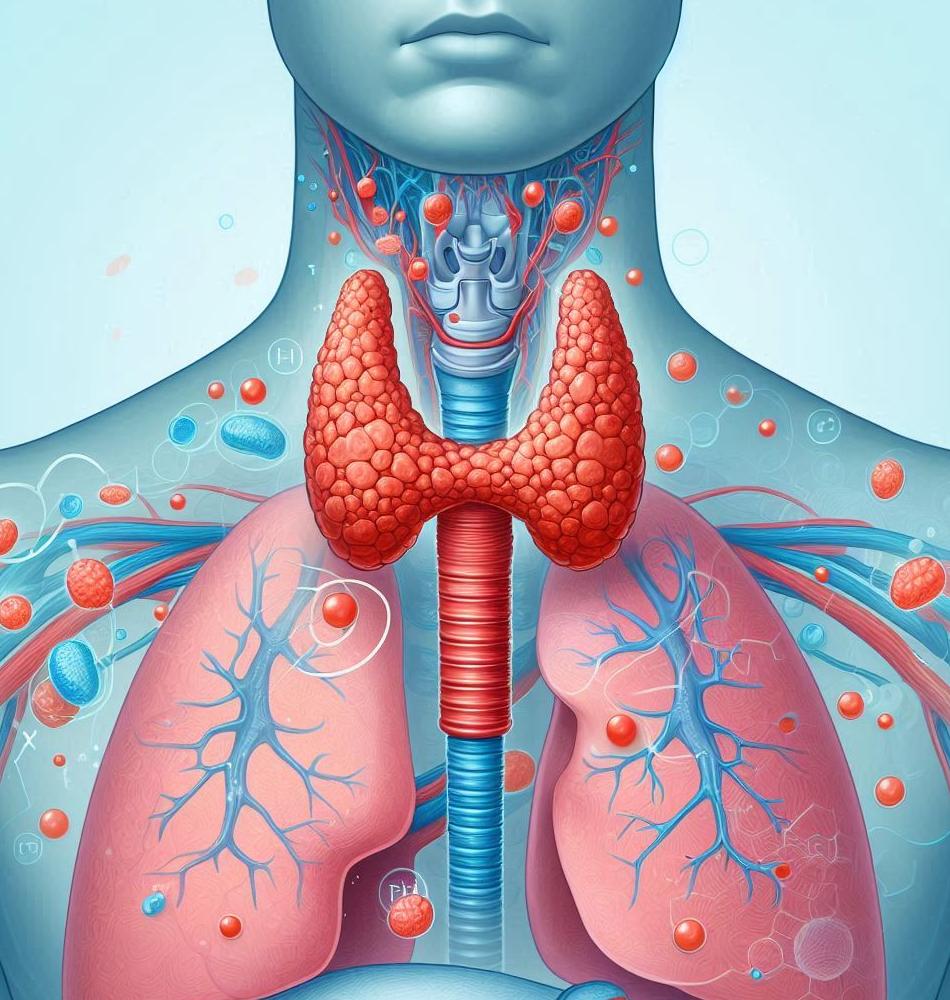Understanding Hashimoto's Disease: The Best Treatments Available 🌟
Hashimoto's disease is a common autoimmune disorder that affects the thyroid gland. This condition leads to chronic inflammation, which eventually can result in hypothyroidism, causing a myriad of symptoms such as fatigue, weight gain, and depression. Understanding the best treatment options is key to managing Hashimoto's effectively. In this article, we will delve into various approaches that can help to alleviate the symptoms and improve the quality of life for those affected by this disease.
What is Hashimoto's Disease? 🔍
Hashimoto's disease is often misunderstood by the general public. Named after Dr. Hakaru Hashimoto, who first described the condition in 1912, it involves the immune system attacking the thyroid gland, leading to hormonal imbalances. The thyroid plays a crucial role in regulating numerous bodily functions, including metabolism, heart rate, and temperature control.
Symptoms of Hashimoto's Disease 🌈
Identifying Hashimoto's is vital for timely treatment. Common symptoms include:
Fatigue and Low Energy Levels 👎
Understanding Fatigue
One of the most common symptoms reported by individuals with Hashimoto's is fatigue. This differs from typical tiredness as it can significantly impact daily functioning, making even the simplest activities challenging.
Weight Gain and Metabolic Changes ⚖️
Why Does Weight Gain Occur?
Individuals may experience unexpected weight gain due to a slow metabolism often associated with hypothyroidism. Finding a suitable treatment can help manage these changes.
Mood Swings and Depression 😔
Exploring Mood Changes
Mental health can be particularly affected in those with Hashimoto's. The fluctuation in hormone levels can lead to mood swings or depressive episodes, requiring a holistic treatment approach.
Effective Treatments for Hashimoto's Disease 💊
There are several treatment avenues to explore for Hashimoto's. Let's break them down:
Medications: The Conventional Method
Levothyroxine
The most common medication prescribed is Levothyroxine, a synthetic thyroid hormone. This medication aims to restore normal hormone levels and alleviate symptoms. It is essential to take this medication correctly and regularly to see improvements.
Monitoring Thyroid Levels
Regular check-ups and blood tests are essential to monitor thyroid levels. This helps in adjusting medication doses for effective treatment.
Lifestyle Changes: A Complementary Approach 🍏
While medication plays a significant role, lifestyle adjustments can have a positive impact on managing Hashimoto's symptoms. Consider the following:
- Balanced Diet: Focus on a nutrient-dense diet rich in fruits, vegetables, whole grains, and lean proteins.
- Regular Exercise: Engage in physical activities that promote cardiovascular health and boost mood.
- Stress Management: Techniques such as yoga, meditation, and deep breathing exercises can help reduce stress.
Dietary Changes: Importance of Nutrition 🥗
Nutritional deficiencies often accompany Hashimoto's disease, making it essential to adapt dietary habits.
Foods to Incorporate
- Leafy Greens: Such as spinach and kale for rich vitamins and minerals.
- Healthy Fats: Include avocados, nuts, and seeds for better hormone production.
- Whole Grains: Opt for gluten-free grains like quinoa and rice, as gluten sensitivity can exacerbate symptoms.
Foods to Limit or Avoid
- Sugary Foods: Lower sugar intake to manage weight and mood swings.
- Processed Foods: Minimize consumption of processed foods that may lead to inflammation.
- Goitrogens: Avoid excessive cruciferous vegetables in raw form, as they can interfere with thyroid function.
Supplements: Supporting the Body Naturally 🌿
Incorporating supplements can provide support for those dealing with Hashimoto's.
Popular Supplements
- Selenium: May help improve thyroid function and inflammation.
- Vitamin D: Essential for immune support and overall health.
- Omega-3 Fatty Acids: Known for their anti-inflammatory properties, they can benefit thyroid health.
Frequently Asked Questions About Hashimoto's Disease ❓
- What are the immediate signs of Hashimoto's disease?
- Is Hashimoto's disease hereditary?
- Can Hashimoto's disease trigger other autoimmune conditions?
- Are there any natural treatments for Hashimoto's?
- How often should I get my thyroid levels checked?
Conclusion: Finding the Best Path Forward 🌅
Hashimoto's disease can be a challenging condition to manage, but understanding the options available for treatment can empower individuals affected by this illness. Exploring medications, lifestyle changes, dietary adjustments, and appropriate supplements can lead to significant improvements in quality of life. It is essential to take a comprehensive approach to treatment, working closely with healthcare providers to tailor a plan that suits individual needs. By staying informed and proactive, those with Hashimoto's can navigate their journey with confidence and resilience.
.png)






